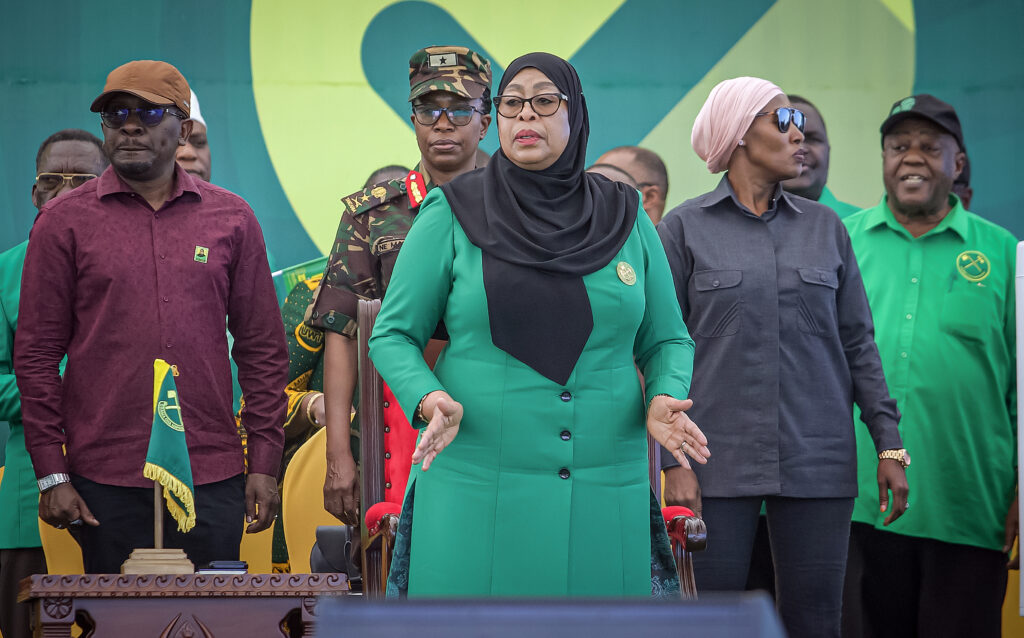President Samia Suluhu Hassan, a soft-spoken politician who unexpectedly found herself Tanzania’s first female leader, is now accused of overseeing heavy repression in the east African nation. Hassan, 65, is seeking to cement her status with a resounding victory in Wednesday’s election and has taken no chances, with the main opposition candidates jailed or barred from running. A former office clerk and development worker, Hassan began her political career in 2000 in her native Zanzibar, a semi-autonomous archipelago.She rose through the ranks of the ruling Chama Cha Mapinduzi (CCM) until being picked by John Magufuli as his running mate for the 2015 election. The pair were re-elected in 2020 in a vote which independent observers said was marred by irregularities.Few outside Tanzania had heard of Hassan until March 2021 when she appeared on national television wearing a black headscarf to announce that Magufuli had died at 61 following a short illness. – ‘A lot of paranoia’ -Hassan’s soft, slow delivery marked a sharp change from the thundering rhetoric of her predecessor. At first, she also seemed to break with his authoritarian tendencies, reversing a ban on opposition rallies and media. But hopes of a new dawn for Tanzanian democracy soon evaporated. Amnesty International has described a “wave of terror” involving “enforced disappearances, arbitrary arrests, torture and… extrajudicial killings” ahead of this week’s election. A former advisor, speaking on condition of anonymity for fear of reprisals, said “she sees this as necessary to cement her rule in a patriarchal society”. Magufuli, a mainland Christian nicknamed “the Bulldozer”, had little time for a Muslim woman from Zanzibar, said the former advisor. “She was nowhere near the centre of power. She was just a box-tick,” they added.Analysts say Hassan faced huge pressure from powerful Magufuli allies within the party, who dominated intelligence and other critical areas, and tried to block her accession.”She knew that the government she inherited was deeply against her and deeply misogynist… so she couldn’t trust anyone. There was a lot of paranoia,” said the former advisor.That paranoia has driven Hassan to seek a resounding mandate in subsequent elections, analysts say, removing any sign of dissent within the party and beyond. – ‘Getting things done’ -Hassan was born on January 27, 1960 in Zanzibar, a former hub for the slave and spice trade in the Indian Ocean. Still ruled by a Muslim sultan, Zanzibar did not merge formally with mainland Tanzania for another four years.Her father was a school teacher and mother a housewife. Hassan has said publicly that her school results were poor, and she took a clerkship in a government office at 17 before entering higher education.Hassan became a development officer in the Zanzibar government and later a project manager for the UN’s World Food Programme.In 2000, she entered Zanzibar’s House of Representatives and served as a local government minister — first for youth employment, women and children and then for tourism and trade investment.In 2010, she was elected to the National Assembly on mainland Tanzania. Then-president Jakaya Kikwete appointed her minister of state for union affairs.”I may look polite, and do not shout when speaking, but the most important thing is that everyone understands what I say and things get done as I say,” Hassan said in a speech in 2020.
